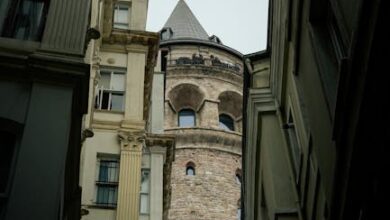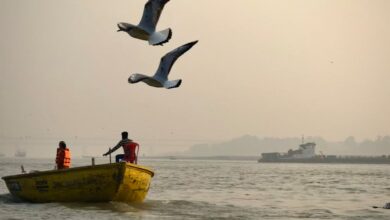A Nation Mobilized: The Unprecedented Scale of ‘No Kings’

If you woke up last Saturday morning anywhere in the country, chances are you felt something in the air – a hum, a buzz, a palpable sense of collective energy building. By the end of the day, that energy had manifested into one of the most remarkable displays of nationwide democratic expression in recent memory: the ‘No Kings’ protests. From bustling city centers to quiet town squares, millions of people stepped out, not just to march, but to make a profound statement about power, accountability, and the future they envision.
Organizers have since released staggering figures: an estimated 7 million participants across 2,700 cities. These aren’t just statistics; they represent an intricate tapestry of individual voices weaving into a singular, undeniable roar. It was a day that transcended typical political gatherings, blending grassroots fervor with high-profile visibility, and injecting a unique blend of solemn purpose with creative, often humorous, defiance.
A Nation Mobilized: The Unprecedented Scale of ‘No Kings’
To truly grasp the magnitude of last Saturday’s ‘No Kings’ protests, one needs to move beyond mere numbers and consider the logistical and emotional resonance. Seven million people across 2,700 distinct locations isn’t just a crowd; it’s a testament to a deeply felt, widely shared sentiment that has reached a boiling point. Imagine the countless conversations, the coordinated efforts, the personal decisions made by millions to show up and be counted.
This wasn’t a localized outcry but a truly national phenomenon, painting a vivid picture of interconnected communities sharing a common message. Whether you were in a mega-city parade or a small-town gathering, the feeling of collective purpose was undeniable. It felt less like a series of isolated events and more like a single, massive conversation unfolding in real-time across time zones.
More Than Just Numbers: Faces in the Crowd
What made these nationwide protests particularly compelling was the incredible diversity of participants. It wasn’t just a specific demographic or political group. News feeds and social media lit up with images of everyone from seasoned activists to first-time protesters, families with young children, and elderly citizens, all united under the ‘No Kings’ banner.
Perhaps even more striking was the blend of familiar faces among the millions. High-profile politicians marched shoulder-to-shoulder with their constituents, blurring the lines between leadership and representation. A-list celebrities lent their visibility, not just as endorsements, but as active participants, carrying signs and engaging with the crowds. This cross-section of society underscored the broad appeal and multi-faceted concerns driving the movement, signalling that the message resonated far beyond any single political aisle or cultural niche.
The Art of Defiance: Creativity on Display
Beyond the sheer numbers and diverse participation, last Saturday’s ‘No Kings’ protests were a masterclass in visual communication and creative expression. If you scrolled through any social media feed, you were immediately struck by the sheer ingenuity on display. This wasn’t just about chanting slogans; it was about art, satire, and humor serving as powerful vehicles for dissent.
Among the most memorable elements were the “creative inflatables.” Colossal, often whimsical, figures floated above the crowds, their larger-than-life caricatures serving as both comedic relief and biting satire. These giant balloons, ranging from exaggerated renditions of authority figures to symbolic representations of injustice, became instant icons, grabbing media attention and encapsulating complex messages in easily digestible, shareable forms.
The Power of the Visual Message
But it wasn’t just the inflatables. Homemade signs, often scrawled with wit, poetry, or poignant calls to action, became miniature works of art. Some were brilliantly minimalist, others richly detailed. They reflected individual grievances while contributing to a collective narrative. The vibrant colors, the clever wordplay, and the sometimes-heartbreaking honesty displayed on these placards spoke volumes without uttering a sound.
This creative surge served multiple purposes. It made the protests more engaging and accessible, attracting wider audiences and making the messaging stick. It humanized the movement, showcasing the personality and passion of its participants. And crucially, it allowed for the expression of nuanced ideas in ways that traditional speeches or chants often cannot, leaving a lasting impression long after the streets had cleared.
Beyond Saturday: What ‘No Kings’ Means for Tomorrow
As the dust settles from last Saturday’s monumental demonstrations, the question naturally turns to what comes next. The ‘No Kings’ slogan itself carries a weighty implication, suggesting a rejection of unchecked authority, absolute power, or any system perceived as operating without true accountability to the people. It’s a call for greater equity, transparency, and a re-evaluation of who truly holds the reins of power.
These protests weren’t just about expressing discontent; they were a profound act of democratic expression, a collective reassertion of citizen agency. The sheer act of millions gathering, speaking, and being seen, sends an undeniable signal to those in power and to the wider world: the people are watching, and they demand to be heard. The energy and passion ignited on Saturday can’t simply dissipate; it needs to be channeled into sustained engagement and actionable steps.
The impact of such a widespread mobilization rarely manifests overnight. Instead, it ripples through public discourse, influences policy debates, and energizes grassroots movements. The images and stories from Saturday will continue to inspire, provoke thought, and serve as a powerful reminder of what is possible when a nation chooses to speak in unison. It’s a moment that will undoubtedly shape conversations and actions for months, if not years, to come.
Last Saturday’s ‘No Kings’ protests were more than just a fleeting moment of dissent; they were a significant punctuation mark in our ongoing civic conversation. They reminded us of the sheer power of collective action, the beauty of diverse voices united by common purpose, and the critical importance of a citizenry actively engaged in shaping its own destiny. The streets may be clear now, but the echo of millions of voices still rings, a powerful testament to the enduring spirit of democracy and the unwavering belief that the true power resides, ultimately, with the people.





